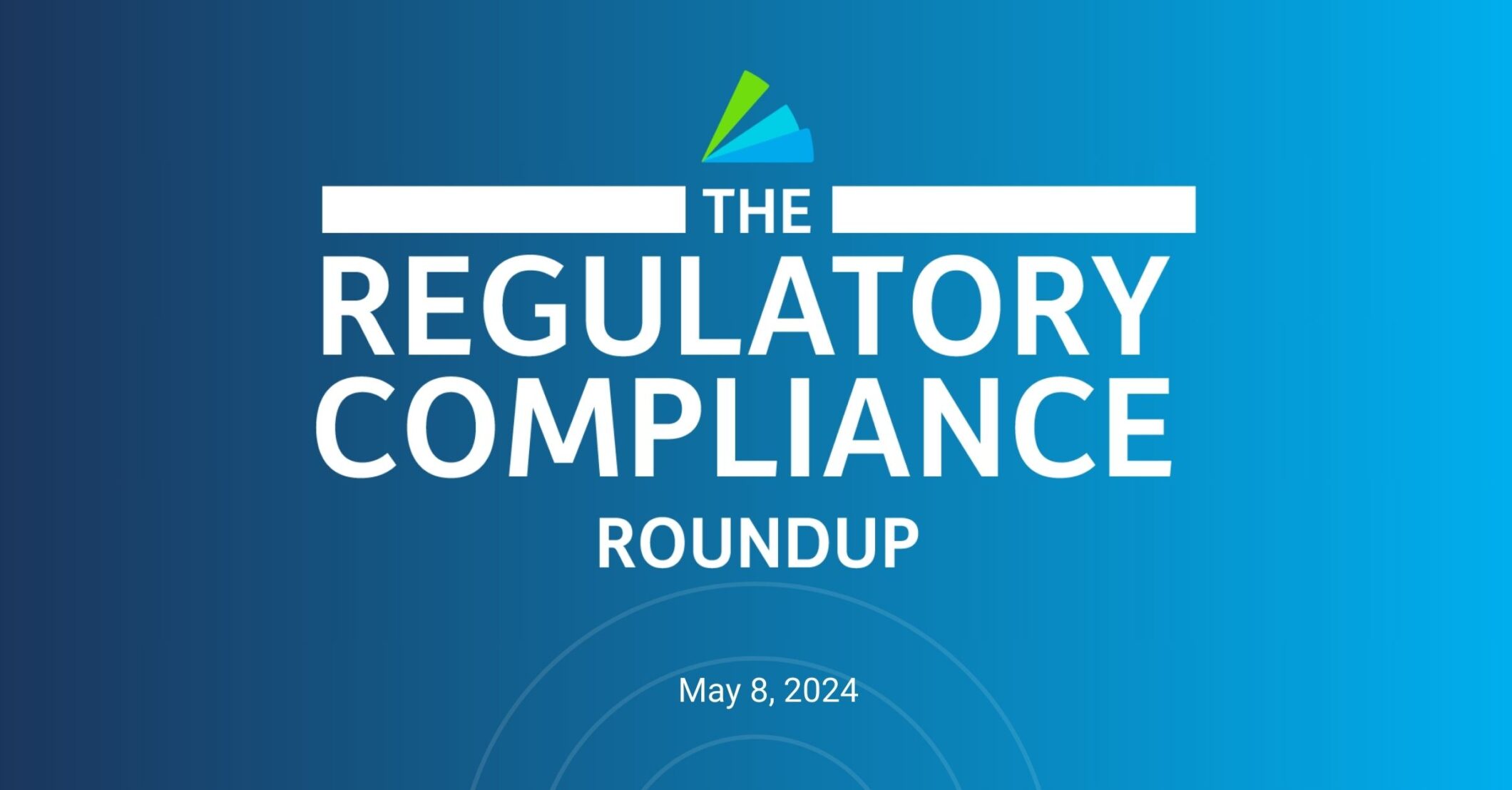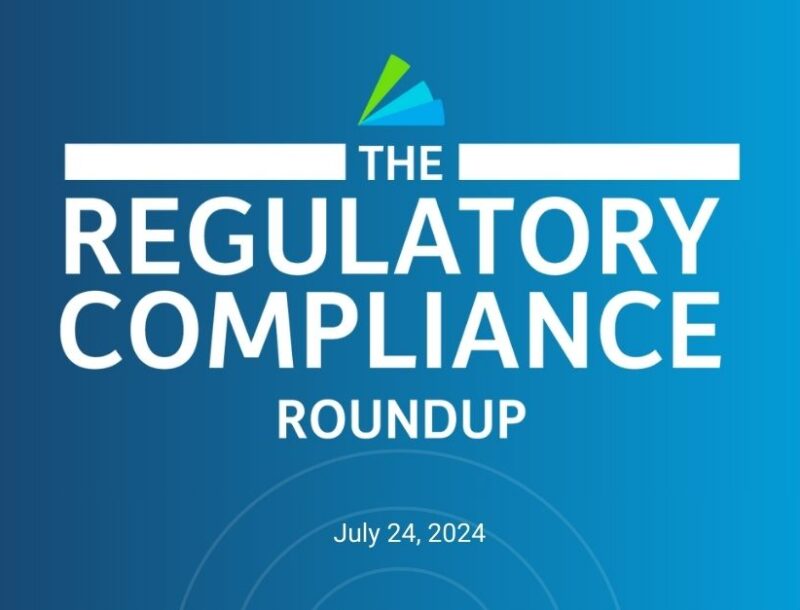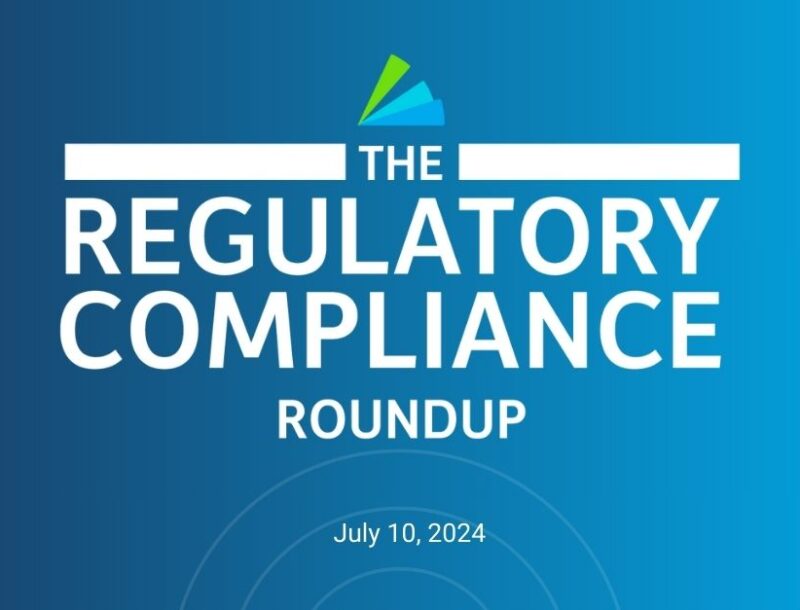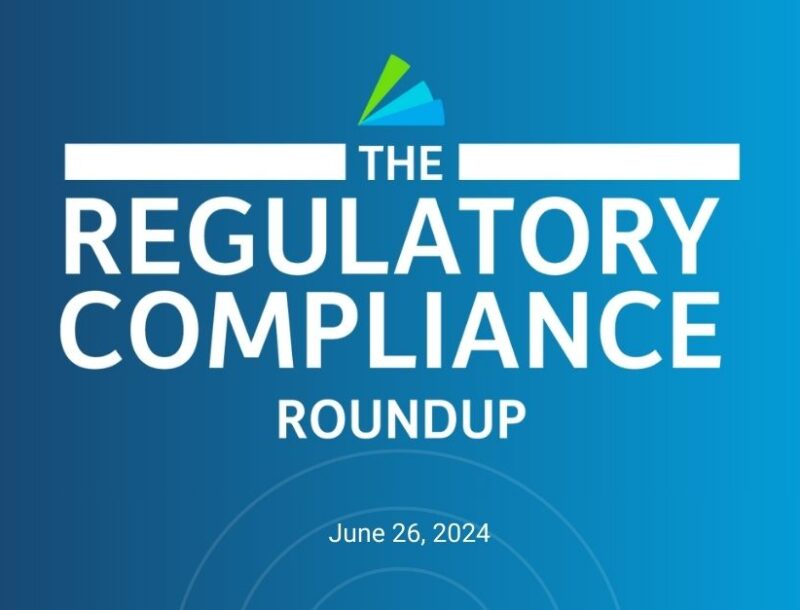The Roundup: Regulators Issue Guidance to Community Banks, The Hidden Cost of HSAs, and Action Taken Against Bill Payment Company for Misleading Consumers

Welcome to the PerformLine Regulatory Compliance Roundup, home of the latest news, articles, and reports from our industry, curated for you. Let’s get into it.
In this edition: Regulators issue guidance to community banks on third-party risks, the CFPB highlights the hidden costs of health savings accounts, the FTC takes action against a bill payment company for misleading consumers, the CFPB and European Commission report on coordinated efforts concerning consumer financial protection, the FDIC hits Alabama, and Oklahoma banks with a consent order, and overdraft/NSF revenue in 2023 is down more than 50% versus pre-pandemic levels.
Do you want to be the first to know when the Regulatory Roundup is released? Subscribe to never miss an email and follow us on LinkedIn for even more updates on marketing compliance.
Regulators Issue Guidance to Community Banks on Third-Party Risks
Federal regulators, including the Federal Reserve, FDIC, and OCC, have issued a new 30-page guidebook to help community banks manage risks associated with third-party relationships. This guidance covers all stages, from planning and due diligence to contract negotiation and ongoing oversight. It emphasizes the importance of banks properly managing these third-party risks to prevent financial losses and harm to customers, reiterating banks’ responsibilities despite the involvement of non-bank partners.
CFPB Highlights the Hidden Costs of Health Savings Accounts
The Consumer Financial Protection Bureau (CFPB) published a report on the hidden costs of health savings accounts (HSAs). Despite offering tax benefits and being associated with high-deductible health plans, HSAs can often include “junk fees,” like these benefits are being offset by charges like monthly maintenance fees, paper statement fees, outbound transfer fees, and account closure fees.
These high costs and fees can quickly erode a consumer’s ability to pay medical bills. In the case of health savings accounts, such fees and costs can also erode tax savings. This report supports the Bureau’s efforts to reduce the financial consequences of medical debts and ensure that consumers are treated fairly by providers participating in the healthcare sphere.
Significant Stat: $43.6 Million: Total financial relief from a water treatment financing company provided to those harmed by deceptive marketing and sales tactics. Read more
FTC Takes Action Against Bill Payment Company for Misleading Consumers
The Federal Trade Commission (FTC) has taken legal action against a bill payment company for misleading consumers and adding millions in junk fees. The FTC claims that the company used deceptive search ads to impersonate billers, misleading consumers into believing false affiliations, and imposed hidden fees that led to utility shut-offs and lapses in insurance coverage.
CFPB and European Commission Report on Coordinated Efforts Concerning Consumer Financial Protection
The CFPB and the European Commission have outlined their cooperative approach to consumer financial protection, emphasizing the impact of emerging technologies such as Artificial Intelligence, digital payment systems, and ‘Buy Now, Pay Later’ schemes. Their joint statement underlines ongoing efforts to ensure financial data privacy, maintain competitive markets, and equip consumers to handle new financial technologies.
FDIC Hits Alabama and Oklahoma Banks with Consent Order
The FDIC issued consent orders to two banks due to lapses in anti-money laundering (AML) and Bank Secrecy Act (BSA) compliance. These orders mandate enhanced board oversight, revision of AML/counterterrorism financing programs, and development of comprehensive compliance plans. The banks are required to improve their customer due diligence and monitoring processes to ensure accurate reporting of suspicious activities, reflecting a trend of increased regulatory supervision in the banking sector.
Overdraft/NSF Revenue in 2023 Down More Than 50% Versus Pre-Pandemic Levels
The Consumer Financial Protection Bureau (CFPB) reports that overdraft and non-sufficient funds (NSF) fee revenues have fallen by over 50% compared to pre-pandemic levels, saving consumers more than $6 billion annually. Policy changes by financial institutions in 2022 and 2023 contributed to this decline, with fee structures becoming more consumer-friendly. Despite this progress, consumers still paid $5.8 billion in overdraft and NSF fees last year.


